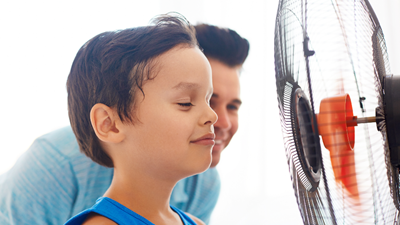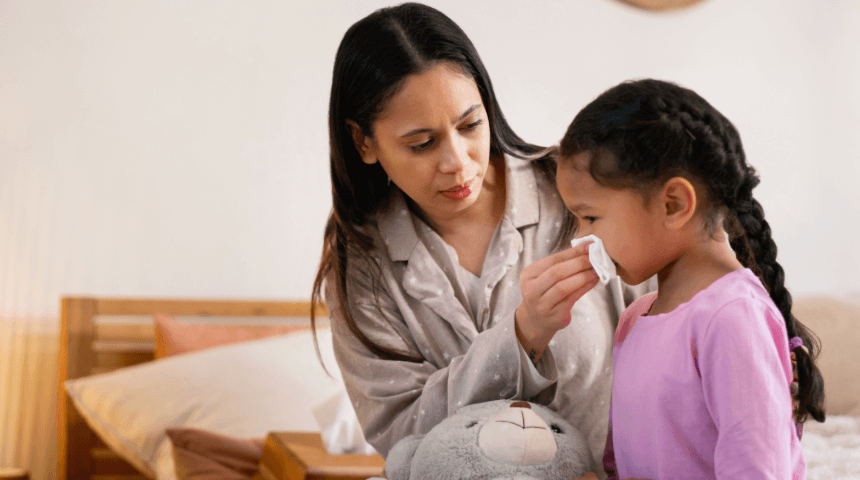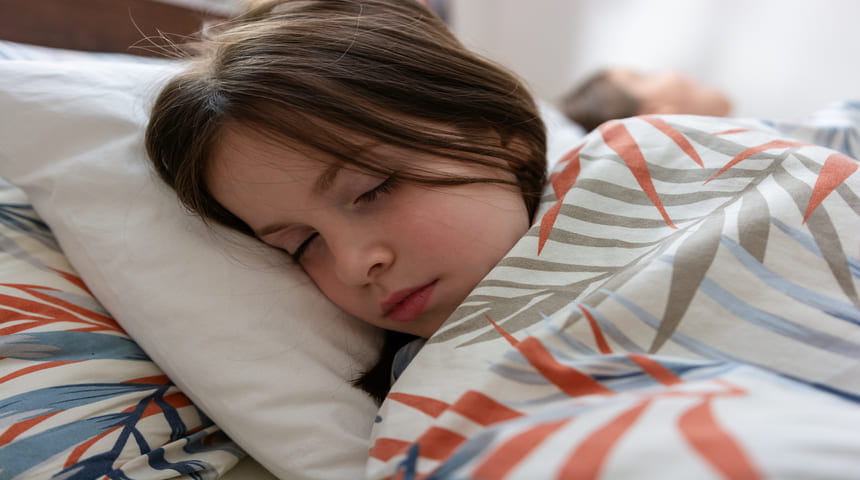When It’s Hot Outside, Protect Your Kids From Heat-Related Illness
Now that summer break has arrived, families are starting to plan their outdoor activities and summer vacations. With warm weather ahead, it is a good idea to take note of the ways extreme heat can affect children and how to safely enjoy the outdoors.
Our bodies are fashioned to maintain a constant body temperature, and any deviations from what is considered normal (98.6 degrees Fahrenheit) can make us ill. Environmental heat can make our body temperature rise quickly, especially when we are exercising. By sweating, our bodies attempt to cool off; however, this mechanism is not as effective when humidity is high. Children especially can run into trouble during extreme heat because they have a lower capacity for sweating than adults.
The National Weather Service identifies a heat index of 90 degrees Fahrenheit as a significant health risk (the heat index is what temperature it actually feels like when taking humidity levels into consideration). This means that nearly all summer long here in Florida, there is reason to take precautions against heat illness.
Here are some tips for preventing heat-related illness:

- Take frequent breaks to cool off, especially if outdoor activity lasts longer than one hour. Seek air-conditioned or shady spaces.
- Drink plenty of water and drink it frequently. Don’t wait until thirst sets in.
- Dress appropriately – wear lightweight and light-colored clothing.
- Protect the skin from excessive exposure to sun.
- Schedule activities during the coolest part of the day (before 10 a.m. and after 4 p.m.).
- Never leave a child in a closed motor vehicle!
Here are some signs that your child may be suffering from a heat-related illness:
- Painful leg muscle contractions or cramps
- Fatigue
- Nausea or vomiting
- Dizziness, fainting, moist or flushed skin
- Increased body temperature
- Confusion or changes in mental status
If symptoms above are noticed, activity should be stopped immediately, and the child should be moved to an air-conditioned or shaded place. Water should be given to replace lost fluids. If symptoms do not resolve quickly, body temperature elevates, or mental status changes occur, the child should be taken to the Emergency Department to receive medical care.
Are You Interested in Learning More?
Sign up for our e-newsletter for more tips and best practices from pediatricians.
Sign Up Here










